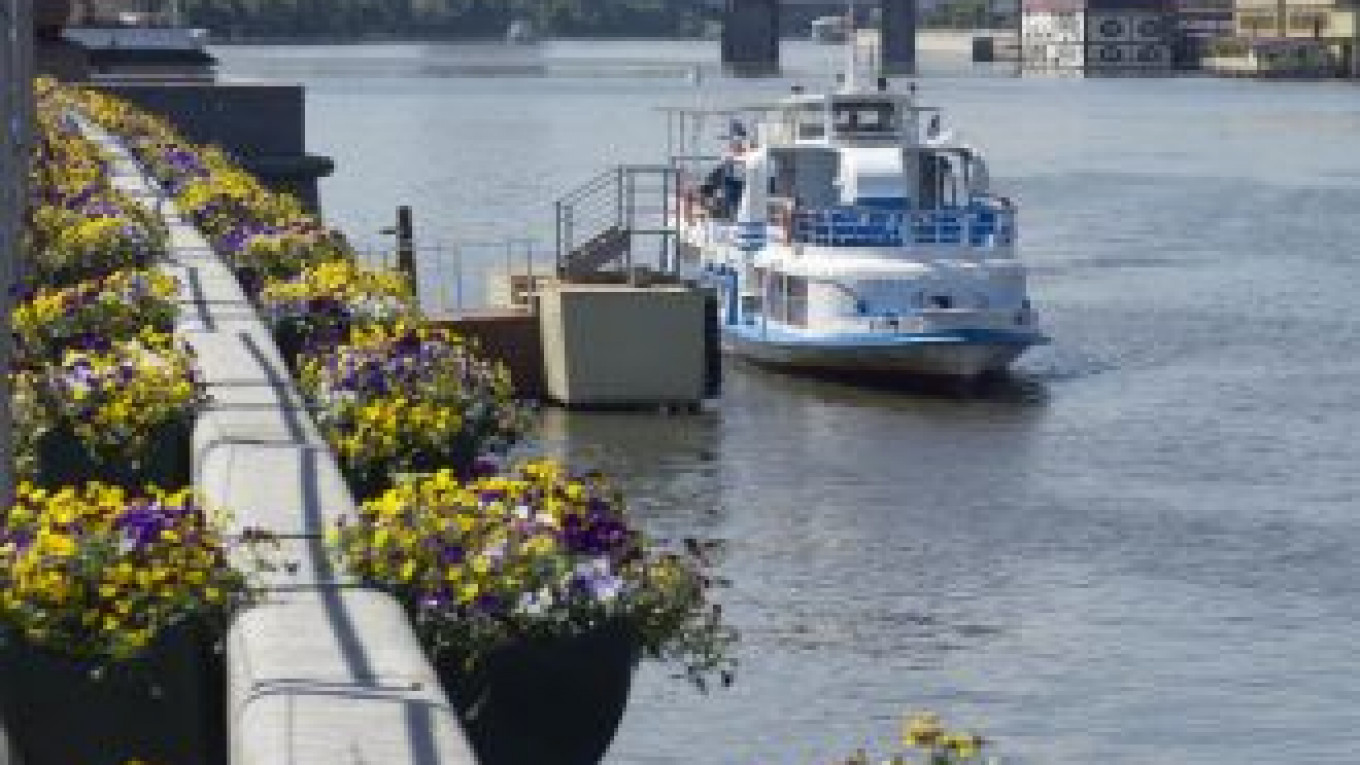As the mayoral race came into full swing, acting Mayor Sergei Sobyanin has promised that Moscow would get the largest city park in Europe.
The plan envisages developing the vast park territories along the River and creating a single pedestrian zone, which Sobyanin said would stretch from Mosfilmovskaya Ulitsa in the southwest of the city to Bersenevskaya Naberezhnaya in downtown Moscow.
"Having put separate pieces into one, we have actually created the largest city park in Europe with the longest embankment in Europe," he said while inspecting the renovation works on the Moscow River promenade on Saturday.
The renovated park will unite the territories of Gorky Park, Neskuchny Sad, Muzeon Park on Krymskaya Naberezhnaya and the Vorobyovy Gory nature reserve. The latter has yet to be developed, with city authorities intending to create walking paths, install environmentally friendly outdoor lighting based on solar panels and ensure safety.
This work should be done by the end of this year, Sobyanin said, according to a statement on the City Hall website.
If those plans come to fruition, Moscow might get a pedestrian zone whose area will compare to the biggest parks in Europe and the U.S., said Anton Korotayev, head of retail consulting at Jones Lang LaSalle Russia.
The overall area of the territory that the city authorities plan to develop is about 300 hectares, he said. This is twice the area of London's Hyde Park, which stands at nearly 140 hectares, while the territory of Rome's Villa Borghese is about 80 hectares.
"That means the park in Moscow will definitely become one of the biggest in Europe," Korotayev said, adding that its territory will be equal to that of New York's Central Park.
At the same time, he said the increased area would result in a greater inflow of visitors. He added that Gorky Park currently accepts about 15 million visitors a year, compared with Central Park's 25 million.
He also warned that the growing number of visitors might create inconveniences like a lack of parking space, which is already a significant problem for Gorky Park.
One possible solution of the problem is developing other territories in the city, said Vladimir Sergunin, business development director at Colliers International Russia. One potential area is the square in front of the Paveletsky railway station, which might be turned into a big green area with an underground parking lot like those in Madrid or Zurich, he said.
Sobyanin also promised to upgrade the observation platform on Vorobyovy Gory, according to City Hall's statement.
Meanwhile, his name is associated with another ambitious project that he undertook right after taking office in October 2010. The following year, City Hall spent 2 billion rubles ($61 million) on replacing asphalt in Moscow with tile, Sobyanin told Vedomosti at that time.
The move sparked a wave of criticism from some Muscovites and the media, with the new mayor facing accusations of corruption.
Last year, City Hall gave up its plans to lay road tile in what reportedly saved the city budget about 350 million rubles.
Contact the author at irina.filatova@imedia.ru
Related articles:
A Message from The Moscow Times:
Dear readers,
We are facing unprecedented challenges. Russia's Prosecutor General's Office has designated The Moscow Times as an "undesirable" organization, criminalizing our work and putting our staff at risk of prosecution. This follows our earlier unjust labeling as a "foreign agent."
These actions are direct attempts to silence independent journalism in Russia. The authorities claim our work "discredits the decisions of the Russian leadership." We see things differently: we strive to provide accurate, unbiased reporting on Russia.
We, the journalists of The Moscow Times, refuse to be silenced. But to continue our work, we need your help.
Your support, no matter how small, makes a world of difference. If you can, please support us monthly starting from just $2. It's quick to set up, and every contribution makes a significant impact.
By supporting The Moscow Times, you're defending open, independent journalism in the face of repression. Thank you for standing with us.
Remind me later.






